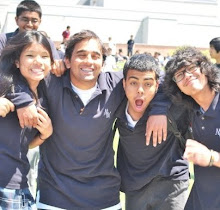Learned how to fly. Check
Gone to the moon. Check
Explored the ocean floor. Check.
Wiped out the Caspian tiger population. Check.
What humans have accomplished since the day that they’ve inhabited the earth is amazing, unbelievable almost. Yet still, the thought of this huge tin can in flight, carrying tons of people and luggage still amazes me. Humans have come so far from cave drawings and stone wheels, but what is the cost the earth and the other inhabitants are paying for our luxuries and greed?
Humans, as a whole, cannot call themselves 'stewards of the world'. My favourite example ever, is the tragedy of the blue whale. The series Planet Earth by BBC had this little scene on the blue whale, and what I learned from it stuck with me. Lucky for you, I found a piece of it on Youtube! Check it out, it will make your day, I promise.
These super mammals were once a population of 300,000, today there is less than 3% of that number left. How did this happen? Humans pollute the earth, which pollutes the water. DDT that any garden tender uses eventually gets into the ocean. Krill then consumes the DDT, and the blue whales, consume the krill. Blue whales must eat about 8,000 pounds of krill a day to survive, now imagine all the DDT that ends up in their bodies. Women who breastfeed their babies dump all their chemicals they've collected over their lifetime into their infants, but unlike humans, blue whales don’t have the choice of feeding their babies formula. So clearly, one gardener can greatly impact the chance of survival of this colossal mammal.
So what are the factors that lead to the loss of biodiversity? Climate change, pollution, over exploitation and invasive species, so in nutshell, the answer is “humans”.
Humans are the most invasive species, no doubt. Let’s look at this on a larger scale. Capitalism, the arch nemesis of environmentalism, is responsible for destroying and polluting the earth. A good example is the profitable industry of oil drilling. It’s simple; oil companies go to Alaska, find oil, build their oil mines, pump the land dry, then leave the habitats destroyed which were possibly once breeding grounds or hibernation routes for polar bears and caribou. Not to mention all the air pollution released during the whole operation. Capitalism is about money and power, and will put aside social and environmental values to make as much profit as possible.
I am not saying capitalism is bad. There is nothing wrong with a graduate student, trying to open his own business. It’s the greed and carelessness of large companies that is really hurting our earth on a social and environmental matter. We humans, need to develop, we can’t stop the progression of our world just like that to focus on the environment. What is our world without development? Is it possible for development and going green to co-exist? Or is it one or another? The solution is “sustainable development”. It’s basically environmental, economic and social well being for today and tomorrow. If humans can live, and think this way, we CAN be stewards of our Earth! It’s a win-win situation, but of course it’s not that easy. It takes masterminds to try to make sustainable development work. But impossible is nothing. When cell phones were first introduced, it was like talking into a brick! And in just within a few decades, cell phones can surf the internet, play music, and take pictures while still fitting in our pockets.
As much as humans are invasive and greedy, they are as intelligent. Therefore I personally believe that humans will find a way to make sustainable energy work, and when that day comes we may be able to call ourselves stewards of the earth. But now? Not so much.
We should have a lot of respect for the system, for the natural system, for the biodiversity. Don't worry if you don't know what good they are for; you didn't create it, so you don't know what it is for. Just let it be. Because who knows, someday down the road our future generations might find that they can survive becuase of that aspect of biodiversity. - Wangari Maathai, founder of the Green Belt Movement (from Planet Earth)
http://www.extremescience.com/BlueWhale.htm
http://www.youtube.com/watch?v=1fzT6ifrhL8
http://www.nrdc.org/energy/clouding.pdf
http://www.iisd.org/sd/
http://www.greenfacts.org/en/biodiversity/
http://www.buzzle.com/articles/extinct-animals/
Planet Earth BBC series
Monday, September 21, 2009
Stewards of the earth, my arse!
Subscribe to:
Comments (Atom)
